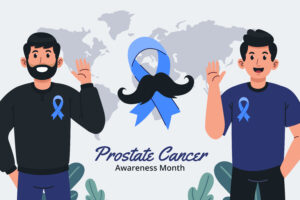The connection between diet and health is a topic of ongoing research and debate. In this context, artificial sweeteners have frequently been the subject of controversy. Aspartame, a widely used low-calorie sweetener has been the subject of persistent cancer claims.
Comprehending Aspartame
Aspartame, sold under brand names such as NutraSweet and Equal is a permitted artificial sweetener for use in a variety of food and beverage products. It offers a sweet flavour without the calories of traditional sugar, making it an attractive option for those attempting to control their calorie intake or blood sugar levels. Aspartame, which consists of two amino acids – phenylalanine and aspartic acid – and a methyl ester group, is digested into its constituent components, which are subsequently metabolised or excreted by the body.

The Primary Issues
The aspartame-cancer controversy stems from studies conducted in the 1970s and 1980s on laboratory rodents that raised concerns about a possible link between aspartame consumption and cancer. These early studies, frequently criticized for their methodologies and limitations, prompted ongoing debates. It is essential to observe, however, that scientific understanding has evolved since then, and that more recent research has provided a more nuanced perspective.
Scientific Evaluation and Regulatory Organizations
Since these initial studies were conducted decades ago, a vast amount of research has been conducted to assess the safety of aspartame. International regulatory agencies, such as the Food and Drug Administration (FDA) of the United States, the European Food Safety Authority (EFSA), and the World Health Organization (WHO), have conducted exhaustive evaluations of the available scientific data. In accordance with established permissible daily intake limits, aspartame is regarded as safe for human consumption, according to the consensus of these reviews.
Competent Opinions

Concerns regarding the link between aspartame and cancer have been greeted with skepticism by field experts. Reputable organizations such as the American Cancer Society and the National Cancer Institute have repeatedly stated that there is no credible scientific evidence linking aspartame to cancer. These organizations emphasize the significance of critically evaluating research, taking into account variables such as study design, sample size, and statistical significance.
Epidemiological Research
Epidemiological studies, which examine patterns of disease occurrence in human populations, have played an important role in evaluating the purported link between aspartame and cancer. Multiple epidemiological studies were evaluated in a comprehensive review published in Critical Reviews in Toxicology, which found no consistent evidence connecting aspartame consumption to an increased risk of cancer. These results highlight the importance of relying on robust, large-scale studies when drawing conclusions regarding potential health hazards.
Phenylalanine and Particular Groups
Aspartame’s phenylalanine content is frequently cited as a cause for concern. Individuals with phenylketonuria (PKU), an uncommon genetic disorder that impairs the body’s ability to metabolise phenylalanine, may be adversely affected. However, individuals with PKU are typically aware of their dietary restrictions and are advised to avoid aspartame-containing foods and beverages.
Conclusion

It is essential to approach health-related claims with skepticism in this age of information inundation. The idea that aspartame causes cancer, while entrenched in historical concerns, has been repeatedly debunked by rigorous scientific research and assessments by regulatory agencies and expert organizations. Aspartame is a safe alternative to sugar for those wishing to reduce caloric intake or manage blood sugar levels when consumed within the recommended limits.
Individuals making dietary decisions should priorities scientific consensus over sensationalized claims. In order to make well-informed decisions that have a positive impact on overall health, it is necessary to consult with healthcare professionals and rely on credible information sources. By dispelling unfounded concerns and embracing evidence-based insights, we can confidently and clearly navigate the complex landscape of nutrition. The connection between diet and health is a topic of ongoing research and debate. In this environment, artificial sweeteners have frequently been at the centre of controversy. Aspartame, a widely used low-calorie sweetener, has been the subject of persistent cancer claims. In this article, we will examine the scientific evidence and expert opinions surrounding the claims that aspartame causes cancer.




